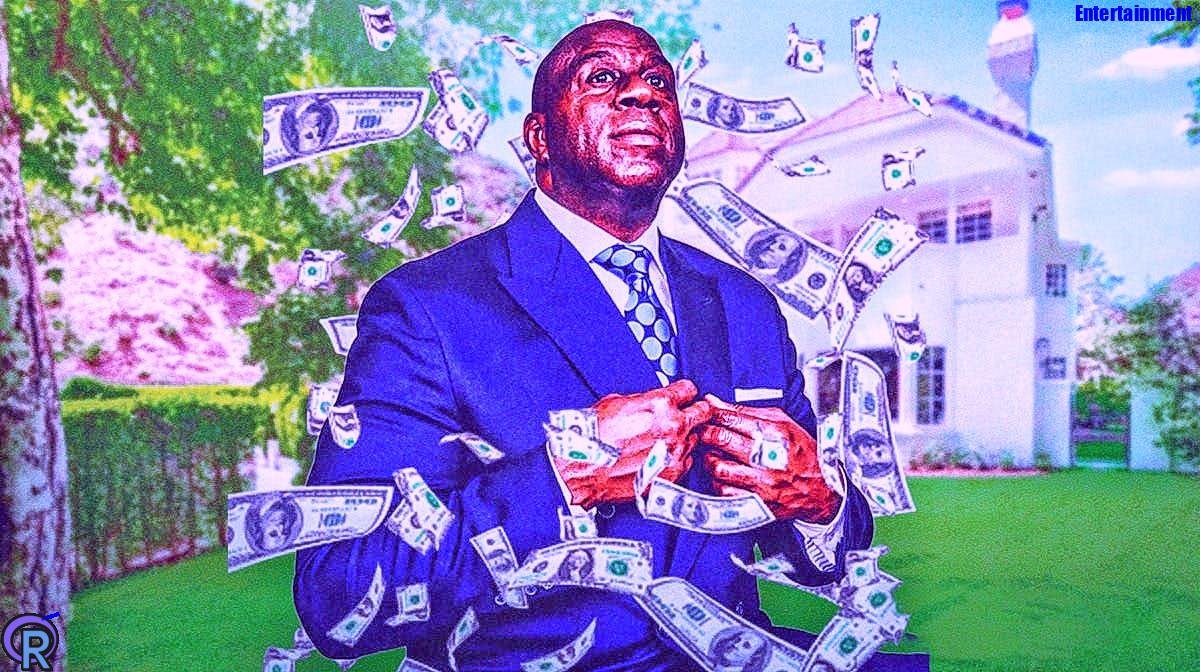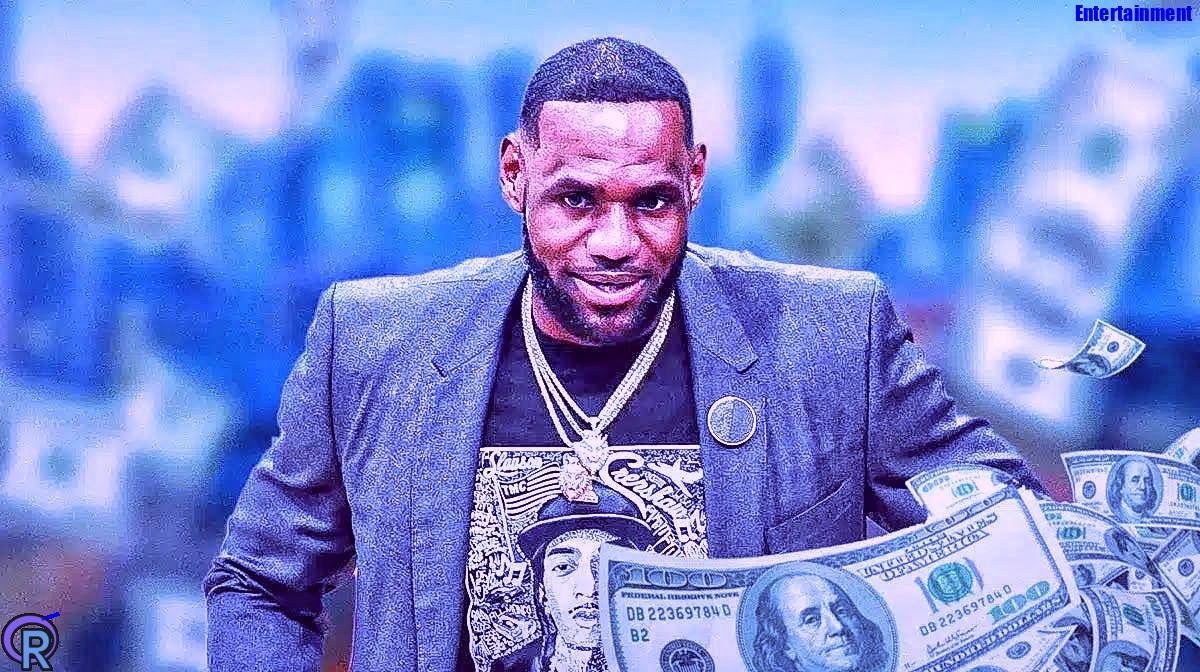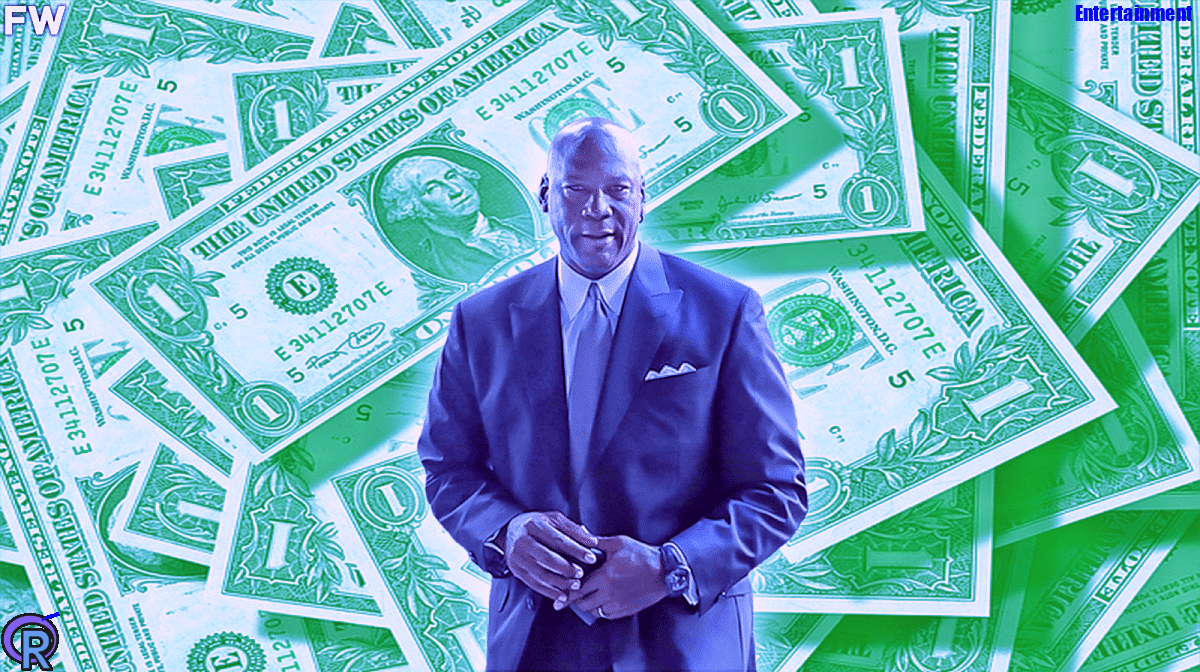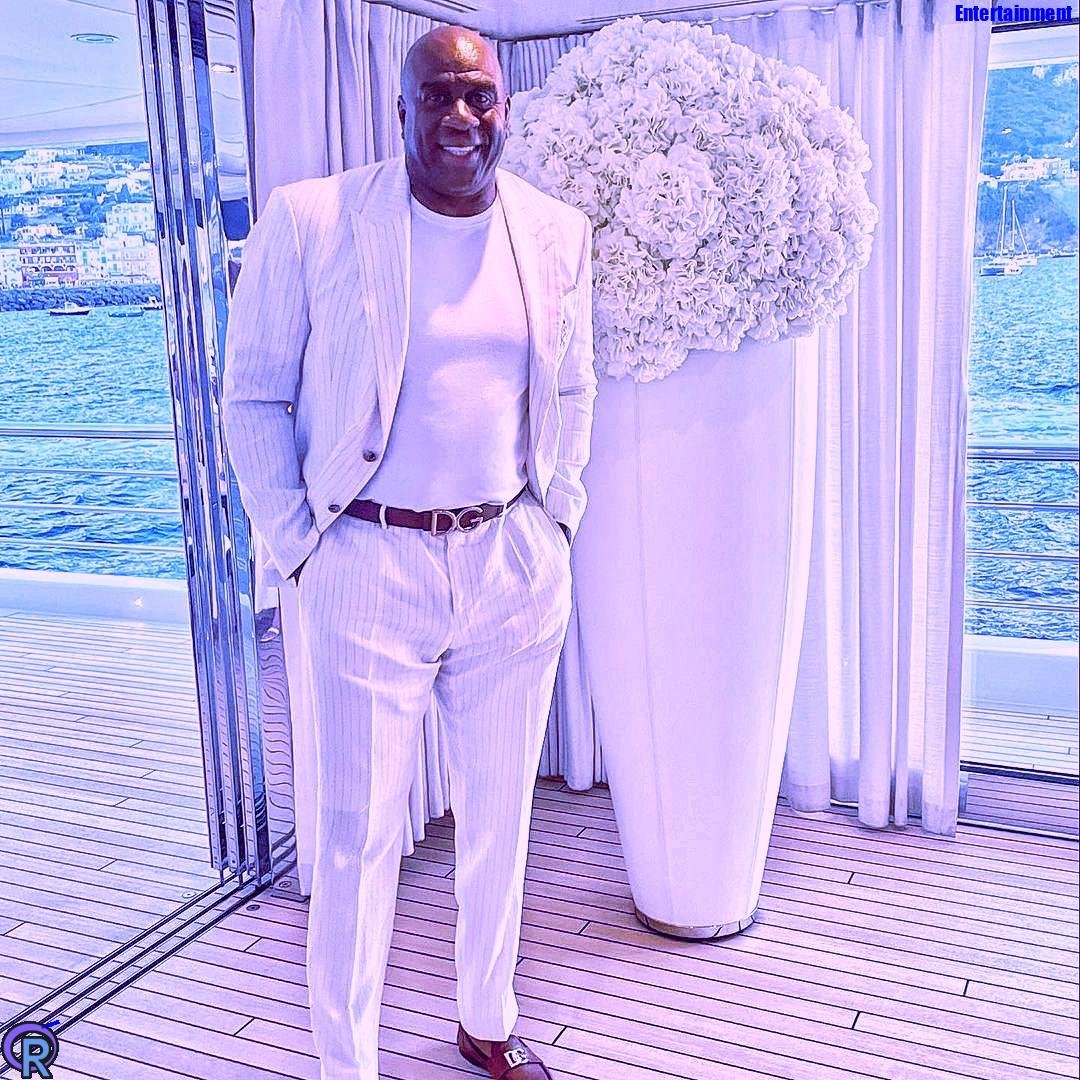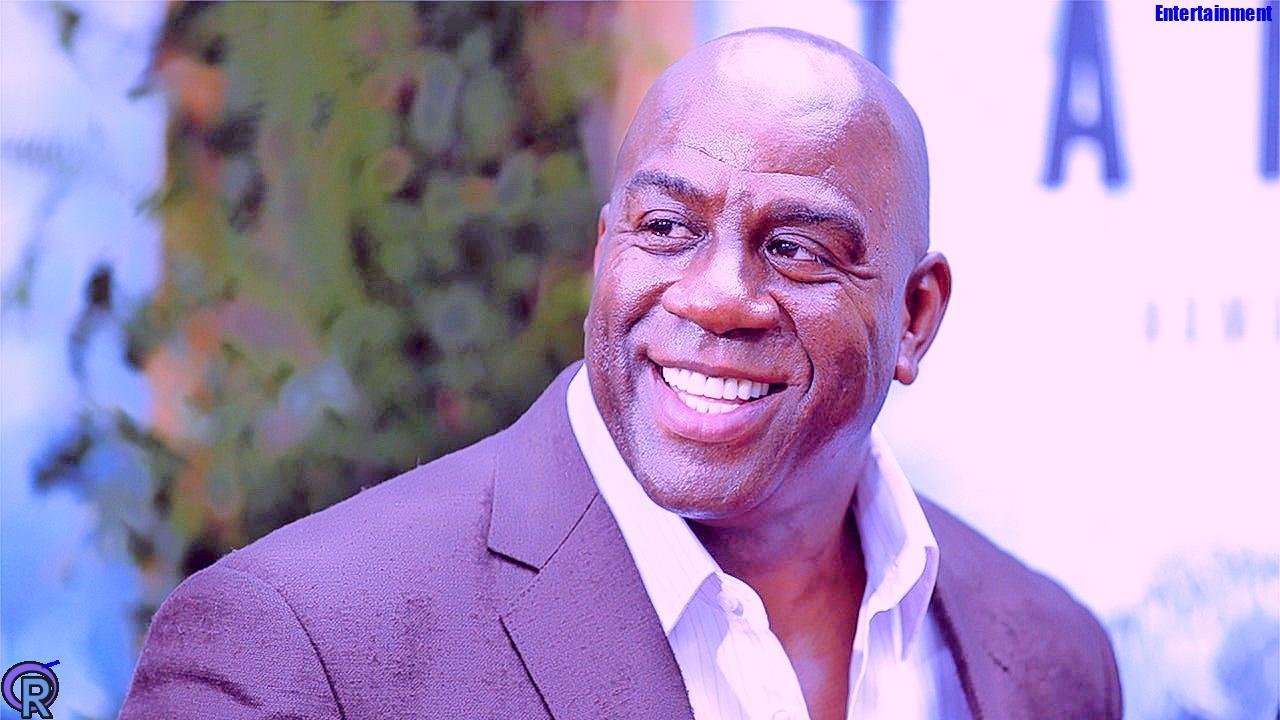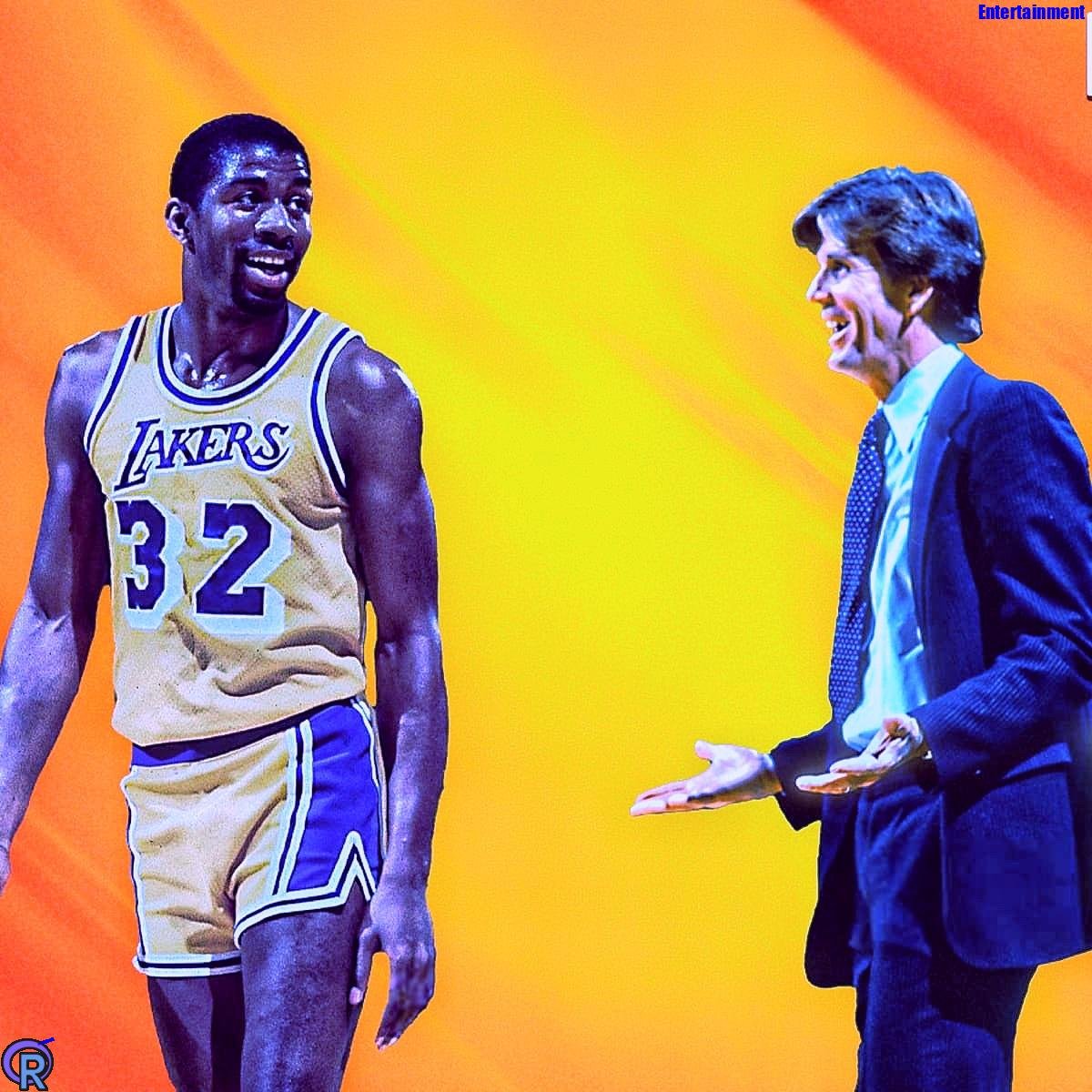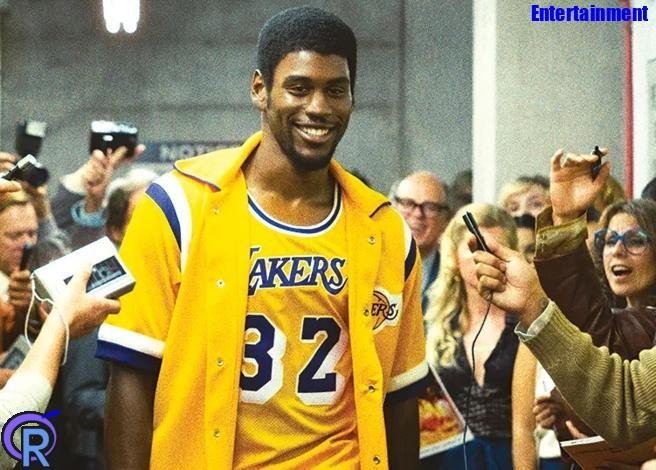Magic Johnson Net Worth 2023? The life story of Cookie Johnson is potent illustration of tenacityfortitude, and business acumen.
Magic Johnson Net Worth 2023
According to CelebrityNetWorth, Cookie has made her own way and made a major contribution to her and Magic Johnson’s combined net worth of $50 million
despite being best known for being the wife of NBA legend Magic Johnson.
Their adventure goes beyond their well-known collaboration.
This is the tale of a lady who rose above her supportive husband role to become a prosperous lawyer and business owner.
With the introduction of her high-end denim brand, CJ by Cookie Johnson, she showcased her business sense and her ability to spot and close a gap in the fashion industry, particularly for ladies looking for chic yet cozy jeans.
Cookie Johnson’s rise from humble beginnings to prominence in the fashion business can be attributed to her innovative approach to the field.
When their denim collection debuted in 2009, it won accolades for emphasizing fit and quality.
It was attractive to a broad range of women. This endeavor went beyond just doing business.
It was an affirmation of inclusivity and empowerment that reflected Cookie’s principles and her awareness of the needs of actual women.
His ability to combine creativity and business acumen is evident in his success in this profession. She became well-known and respected in the fashion industry.
A Lifetime of Advocacy and Individual Victories Cookie Johnson’s life
is intricately linked to her advocacy efforts, especially in the areas of HIV/AIDS awareness and prevention, even beyond her business achievements.
Many others have found inspiration and strength in her personal story of helping Magic Johnson through his HIV diagnosis
Her dedication to this cause, her motherly responsibilities, and her charitable endeavors depict a compassionate and driven lady.
These initiatives have given his public persona a great deal more depth and demonstrated his complex personality and commitment to enacting change.
Cookie Johnson: Building a Legacy That Goes Beyond Money According to CelebrityNetWorth, Cookie Johnson’s $50 million net worth
is the result of an incredible combination of her career inventiveness, personal fortitude, and charitable giving. His tale is not just one of financial success; it’s also the story of a woman who faced obstacles head-on,
utilized her position to speak up on behalf of causes close to her heart, and created a company founded on the values of inclusivity and empowerment. Born in 1959 in Lansing, Michigan, Earvin “Magic”
Johnson Jr. was a one-of-a-kind creation. From a young age, his exceptional talent and perseverance were apparent, leading to an outstanding career at Michigan State University.
When the NBA called, Johnson was prepared to take the call. As a result of his legendary birth punctuated by his 1979 Los Angeles Lakers debut, his net worth rose to an incredible $630 million
in 2023, according to CAknowledge. Named magic, but magic all around us.
Slam Dunks and Awards: A Distinguished Career
Enchantment Johnson had an incredible career with the Lakers, replete with wins and amazing performances.
Three MVP honors, five NBA titles, an Olympic gold medal with the “Dream Team”—Johnson’s trophy case is a monument to his brilliance.
Johnson’s on-court style, which combined strength, intelligence, and delicacy, also transformed the game.
A legacy that will live on in the annals of basketball history and leave a lasting impression on upcoming basketball players. Victory and family ties: a personal journey
Magic’s personal life
has been equally captivating off the hardwood. His caring and welcoming personality is demonstrated by his marriage to Cookie Johnson and his support of his kids,
especially his out homosexual son EJ. His public struggle with HIV was also noteworthy because it transformed a personal struggle into a worldwide awareness campaign.
Johnson’s activism and perseverance in the face of hardship arouse respect and adoration, giving his complex personality more dimension.
Influence and investments: business magnate
When Johnson decided to retire from basketball, he started his incredible career in business.
From owning movie theaters to investing in Starbucks to even owning a portion of the Dodgers, Johnson’s economic sense is as keen as his skill on the court. Their company’s success goes beyond just making money.
His charitable endeavours, which centre on empowerment, health care, and education, benefit the areas where he was raised and are carried out through the Magic Johnson Foundation. An intentional portfolio and a soulful strategy.
An enduring legacy: the last whistle
Magic Johnson’s life is a mosaic of victories and setbacks intertwined with the qualities of diligence, fortitude, compassion, and inventiveness. His trajectory is an example of success
from breathtaking plays on the basketball court to smart genius in the boardroom. His enormous $630 million net worth, according to CAknowledge, is only partly
The biography of Magic Johnson Childhood, NBA career, and legacy
On August 14, 1959, Earvin “Magic” Johnson Jr. was born in Lansing, Michigan. Johnson developed an early passion for basketball and looked up to players like Earl Monroe and Bill Russell.
As a sophomore, Johnson earned the moniker “Magic” at Everett High School in Lansing, which he would later attend.
Magic’s time in high school will be fantastic. While averaging 28.8 points and 16.8 rebounds per game as a senior, he guided Everett to a 27–1 record and a state title.
He was twice selected to the All-State team and, in his senior year, was named a McDonald’s All-American. At the time, he was regarded as the best high school player to come out of the state of Michigan.
career in college
Johnson attended Michigan State University in Lansing because he wanted to be nearer to home. Despite his brief attendance, he made a significant and lasting impression.
After averaging 17.0 points, 7.9 rebounds, and 7.4 assists in his freshman year, he was selected for the All-American Second Team.
The Spartans finished 25-5 under the Magic’s direction, won the Big Ten title, and advanced to the Elite Eight, where they were defeated by Kentucky.
In his second season, Johnson averaged 17.1 points, 7.3 rebounds, and 8.4 assists, and he had another fantastic year.
Leading the Spartans to the national championship game against their eventual NBA opponent, Larry Bird and the Indiana State Sycamores, he was a unanimous first-team All-American.
Johnson led Michigan State to the national championship with a 75–64 victory in the most watched college basketball game ever, and he was awarded the Final Four Most Outstanding Player.
Lakers’ history
In exchange for Gail Goodrich, who signed with the New Orleans Jazz in the summer of 1977, the Los Angeles Lakers received the first round pick of the Jazz as compensation.
Because the Jazz had the lowest NBA record at the end, the Lakers would have received the first overall pick if they had won. They selected Magic Johnson
with the first pick with a coin flip, matching him with the great center Kareem Abdul-Jabbar, who is regarded as the best player in the NBA.
As soon as he took over as the starting point guard, Johnson enjoyed an incredible rookie season and gave the Lakers a new look.
Despite not winning Rookie of the Year, Magic averaged 18.0 points, 7.7 rebounds, 7.3 assists, and 2.4 steals per game against Larry Bird. He made the All-Rookie squad and was chosen an All-Star starter.
In the playoffs, he improved even more, averaging 18.3 points, 10.5 rebounds, 9.4 assists, and 3.1 steals per game. Kareem’s outstanding effort in Game 5 put the
Lakers ahead 3–0 in the series and into the NBA Finals, but Abdul-Jabbar was forced to miss Game 6.
Johnson would hop to center and play all positions on route to a 42 point, 15 rebound, and 7 assist effort as the Lakers defeated the Sixers to win the NBA Championship.
It will always be remembered as one of the greatest performances in NBA Finals history. Magic had a fantastic night and was crowned NBA Finals MVP.
Due to torn cartilage in his knee, Johnson missed 45 games during his second season, which made it challenging. Before the playoffs, he would still average 21.6 points, 8.6 rebounds,
8.6 assists, and a league-high 3.4 steals. However, the Lakers were defeated by the Houston Rockets in the opening round. Following the season, Magic inked the biggest contract in NBA history with the Lakers—a 25-year, $25 million deal.
In 1982, Magic experienced yet another successful season, averaging nearly a triple-double with 18.6 points, 9.6 rebounds, and 9.5 assists.
It was his best season to that moment. For the second year in a row, he was the league leader in steals and was selected as a second-team member for his first All-NBA squad.
After Wilt Chamberlain and Oscar Robertson, Johnson became the third player in NBA history to average 700 points, rebounds, and assists in a season. Earlier in the season, Johnson also fell out with head coach Paul Westhead.
Jerry Buss, the owner, would fire Westhead and replace him with Pat Riley despite the Magic’s demands for a trade. Westhead’s firing was attributed to the Magic, who received widespread
criticism from the league despite Buss’s admission that he had intended to take the action before the Magic made the demand.
In spite of all the turmoil, the Lakers advanced to the NBA Finals
where they faced the Philadelphia 76ers once more, and the Magic once more performed admirably.
After averaging 16.2 points, 10.8 rebounds, and 8.0 assists in six games to lead the Lakers over the Sixers, Johnson would win his second MVP award in the NBA Finals.
The Magic won the game despite only having three shots attempted. They finished with 13 points, 13 rebounds, 13 assists, 4 steals, and 2 blocks in addition to their triple-double.
Magic Johnson averaged 16.8 points, 8.6 rebounds, and a league-high 10.5 assists in 1983, earning him a spot on his first All-NBA first team.
Magic Johnson averaged 16.8 points, 8.6 rebounds, and a league-high 10.5 assists in 1983, earning him a spot on his first All-NBA First Team.
The Lakers finished with 58 wins and advanced to the NBA Finals for the third time in four years, where they faced the Sixers. However, with every player struggling, LA lost four games.
Johnson made a major turnabout in 1984 when Norm Nixon was traded during the offseason, ending the necessity for him to share playmaking responsibilities. Magic averaged 17.6
points, 7.3 rebounds, and a career-high 13.1 assists. As the Lakers made their third straight trip to the NBA Finals, he was once more awarded an All-Star and an All-NBA First Team pick.
The Lakers would lose in seven games this time around when they faced Larry Bird and the Boston Celtics. Following the series, the Magic faced a lot of backlash
after losing Game 7 by a score of just 5–14 and committed seven turnovers, including a game-ending one in the closing seconds.
The Lakers’ ‘Showtime’ period was characterized by a fast-paced style of play that was adopted by head coach Pat Riley in 1985, who really turned the team around.
Johnson made his third consecutive All-NBA First Team and All-Star Game after averaging 18.6 points and 12.6 assists.
This season, the Lakers were determined to win 62 games and advance to their fourth straight NBA Finals, where they would face the Celtics again.
In the match known as the Memorial Day Massacre, the Lakers lost Game 1, but Magic and Kareem helped them bounce back.
The Lakers eventually defeated the Celtics in the NBA Finals for the first time in franchise history thanks to a remarkable effort from Johnson in Game 5 with 26 points and 17 assists.
Johnson also recorded another triple-double in Game 6 with 14 points, 14 assists, and 10 rebounds. Beaten. Past. Despite being named NBA Finals
MVP for his age-defying performance, Kareem led the Magic with an average of 18.3 points and 14.0 assists in winning their third NBA title.
In 1986, Magic maintained his excellent play, setting a third record for assists in the NBA and being selected to both the All-Star and NBA First Team.
With an average of 18.8 points and 12.6 assists, Johnson helped the Lakers win 62 games once more.
But during the postseason, everything fell apart, as the Rockets defeated the L.A. team in the Western Conference Finals. Despite the Magic’s postseason averages of 21.6 points and 15.1 assists.
Personally, I think Magic had his best season ever in 1987. During the regular season, he averaged a career-high 23.9 points and 12.2 assists, which helped him win his first MVP title.
As the Lakers marched toward a rematch with Larry Bird and the Celtics in the playoffs, winning 65 games and dropping just one, Magic was once again selected to the All-NBA First Team and All-Star Team.
In this series, the Lakers would defeat the Celtics for the second time in six games, and the Magic would prove once and for all who the finest player in the NBA was.
Magic would silence the crowd in Game 4 by making his famous sky hook jumper in Boston, giving the Lakers the victory and a 3-1 series lead.
It was possibly the most memorable moment of Magic’s career. With an average of 26.2 points, 13.0 assists, 8.0 rebounds, and 2.3 steals, Johnson won his fourth NBA title and was named the MVP of the NBA Finals for the third time.
There was a lot of expectation on the Lakers going into the 1988 season after Pat Riley promised they would repeat in the championship parade—something they had not done since the 1960s.
Magic maintained his run of being selected as an All-Star and All-NBA First Team player while averaging 19.6 points and 11.9 assists despite missing 10 games due to a groin ailment.
After overcoming two seven-game series, the Lakers would make it back to the NBA Finals, where they would play the Detroit Pistons and Isiah Thomas.
The Magic participated in L.A. Thomas’ incredible 43-point outburst, which forced a Game 7 with 22 points and 19 assists while the Lakers were down 3-2.
James Worthy recorded his best-ever triple-double in that pivotal game, while Magic added 19 points and 14 assists as the Lakers upset the Pistons 108-105 to win Johnson’s fifth and last NBA championship. beaten.
Johnson would have yet another stellar statistical year in 1989, averaging 22.5 points, 12.8 assists, and 7.9 rebounds to win his second MVP of the regular season.
The Lakers advanced to their third straight NBA Finals, where they met the Pistons in a rematch of the previous year, after winning 57 games and dominating the Western Conference.
However, a hamstring injury would keep the Magic out of Game 2, and the Lakers would fall to Detroit.
Magic stepped up once more after Kareem retired following the 1989 season, capturing his second straight and third career Regular Season MVP title with an average of 22.3 points and 11.5 assists.
The Lakers appeared ready for another return to the NBA Finals after winning 63 games, but they were defeated in the second round by the Phoenix Suns.
retirement
After the season, Magic made the decision to retire permanently, even though he thought about coming back for one more season.
In February 2017, Magic rejoined the Lakers in an executive capacity, taking over as President of Basketball Operations from Jim Buss.
LeBron James will reportedly meet with the Lakers at his house to begin free agency when the Magic sign him.
However, Johnson’s time with the Lakers was brief as he abruptly left the team prior to the team’s last 2019 game.
heritage
The majority of people still rank Johnson as the best point guard in NBA history. In addition to holding the record for the highest career assist average (11.2), his 10,141 assists set an NBA record at the time and currently rank fifth all-time.
Magic also owns the marks for lifetime playoff assists (2,346) and assists in a playoff game. He also ranks second all-time with 138 triple-doubles in his career.
Many people believe that Magic Johnson is the best NBA player of all time, in addition to being the greatest player to have ever played for the Los Angeles Lakers.
On February 16, 1992, the Lakers raised Magic’s number 32 jersey in honor of him. On February 11, 2004, he was also recognized with a bronze bust outside the Staples Center.
chosen with the first overall pick in the NBA draft of 1979
NBA record edit: Source of income
Currently holds the record for the highest career average of assists per game (11.2).
holds the record for most assists in a playoff game with 2,346.
The only player in NBA history with 2,000 or more assists during a postseason career is Johnson.
Has the record for the most assists-average in postseason history (12.4 per game).
Currently holds the record for the most triple-doubles in playoff history (30. all-star game edit).
19 (1988) set the record for most assists in a game without overtime.
Thirteen (1984) is the record for most assists in a half.
postseason edit
holds the record for the most assists per game in a single series of the playoffs with 15.2 (1985).
Has the record for most assists in a single playoff game with 24 (May 15, 1984, against the Phoenix Suns).
holds the mark for most assists in a half in a single playoff game (15), set on May 3, 1985 against Portland.
holds the record for the most free throws made in a half in a single playoff game (19, May 8, 1991 vs. Golden State).
last revision
holds the record for the most assists per game in a single series with 14.0 (1985).
holds the record for the most triple-doubles in a single series with two (1985)
Records the most points scored by a rookie in Game 42 against Philadelphia on May 16, 1980.
holds the record for the most assists as a rookie from Game 11 against Philadelphia on May 7, 1980.
Currently holds the record with 21 assists in a game (June 3, 1984, vs. Boston Celtics).
14 assists in a half is the record (June 19, 1988, vs. Detroit)
The record for most help provided in a quarter is eight times, or four times.
Los Angeles Lakers
revise
Total number of assists: 10,141
Career high average of assists per game: 11.2
Season’s highest assist average per game: 13.1
Season’s most assists: 989
In a game, the most assists: 24
Season with the most steals: 208
Season’s highest steal average per game: 3.43
Most pairs of triples: 138
Season’s highest free-throw percentage:.911
190 playoff games were played, ranking third; 7,538 playoff minutes were played, ranking second.
3,701 playoff points is the fourth-highest total ever.
1,068 playoff free throws rank third; 2,522 playoff field goals are attempted; 1,465 playoff rebounds are collected.
349 playoff offensive rebounds is third-most.
Maximum defensive rebounds in playoffs: 1,116
2,346 are most playoff assists.
3,59 steals in the playoffs most
Additional game-winning shots
revise
Duration (seconds) Balance Due Date of Opponent
Phoenix Suns, November 2, 1979, 6.0-112-110; 1.0 120-118 The Golden State Warriors 22 March 1981, 1:105 99-97 May 25, 1984 – Phoenix Suns
3.0 Golden State Warriors 112-111 Sacramento Kings, March 6, 1986 1.0 113-111; November 16, 1986 2.0 107-106 Boston Celtics 0.0 115-114 June 9, 1987 December 11, 1987 – Boston Celtics
0.0 148–146 2OT Phoenix Suns March 26, 1989 19.0 104-102 Denver Nuggets November 15, 1988 0.0 118-116 Sacramento Kings 0.8 102–101
December 26, 1989 SuperSonics in Seattle 40-point match played on April 17, 1990; modify points scored, opponent date
42 123-107 The Philadelphia 76ers 16 May 1980 41 110–112 OT Utah Jazz 28 March 1981, 40 130-127 The Detroit Pistons January 9, 1982; 46 (OT) 127–117 Sacramento Kings 23 December
1986 42 126-115 The New Jersey Nets 19 January 1987 40 113-108 The Indiana Pacers 13 February 1987 40 110–106 SuperSonics in Seattle Thanksgiving 30, 1988 43 101–114 Suns of Phoenix 13 May 1990
43 103–106 Phoenix Suns 44 124-125 May 15, 1990 The Golden State Warriors 8 May 1991
USA basketball edit
a member of The Dream squad, regarded as the greatest basketball squad ever
Olympic gold medallist in 1992; accomplishments in college basketball; member of the 1979 NCAA Championship team
Most Distinguished Player in the NCAA Division I Tournament
career data
Year Team Team GP games played minutes minutes per game points scored per game
F G% field goal percentage 3pt% percentage of points scored
Rebounds for each game
The number of set assists, steals, and stl per game
1995–1996
Lakers 1995–1996
32 32 29.9 29.9 14.6 14.6 46.6 46.6 37.9 37.9 5.7 5.7 6.9 6.9 0.8 0.8 0.8
1990–1991
Lakers 1990–1991
79 37.1 37.1 19.4 19.4 47.7 47.7 32.0 32.0 7.0 7.0 12.5 12.5 1.3 1.3 1989–90 1989–90
Lakers 79 37.2 37.2 22.3 22.3 48.0 48.0 38.4 36.6 11.6 11.4 1.7 1.7 1.7
1988-89 1988-89
lakers 77 77 37.5 37.5 22.5 22.5 50.9 50.9 31.4 31.4 7.9 7.9 12.8 1.8 1.8 1986-88 1986-88
lakers 72 72 36.6 36.6 19.6 19.6 49.2 49.2 19.6 19.6 6.2 1.2 11.9 11.9 1.6 1.6 1986-87 1986-87
lakers 80 80 36.3 36.3 23.9 22.9 52.2 52.2 20.5 20.5 6.3 12.2 1.7 1.7 1985-86 1986-89
lakers 72 72 35.8 35.8 18.8 18.8 52.6 52.6 23.3 5.9 5.9 11.6 1.6 1.6 19884-85
77 77 36.1 36.1 18.3 18.3 56.1 56.1 18.9 18.9 6.2 12.6 12.6 1.5 1983–84
lakers
67 67 38.3 17.6 17.6 56.5 56.5 20.7 20.7 7.3 7.3 13.1 13.1 2.2 1982-83
Lakers 79 79 36.8 36.8 16.8 16.8 54.8 54.8 0.0 0.0 8 8.6 10.5 10.5 2.2 1981-222
Lakers 78 78 38.3 18.6 18.6 53.7 53.7 20.7 20.7 9.6 9.6 9.5 9.5 2.7
1980–81
Lakers 1980–81
37 37 37.1 37.1 21.6 21.6 53.2 53.2 17.5 17.5 11.6 8.6 8.6 8.6 8.6 8.6 3.4 3.4
1979–80
Lakers, 1979–80
77¸36.3 36.3 18.0 18.0 53.0 53.0 22.6 22.6 7.7 7.3 \ 2.4

